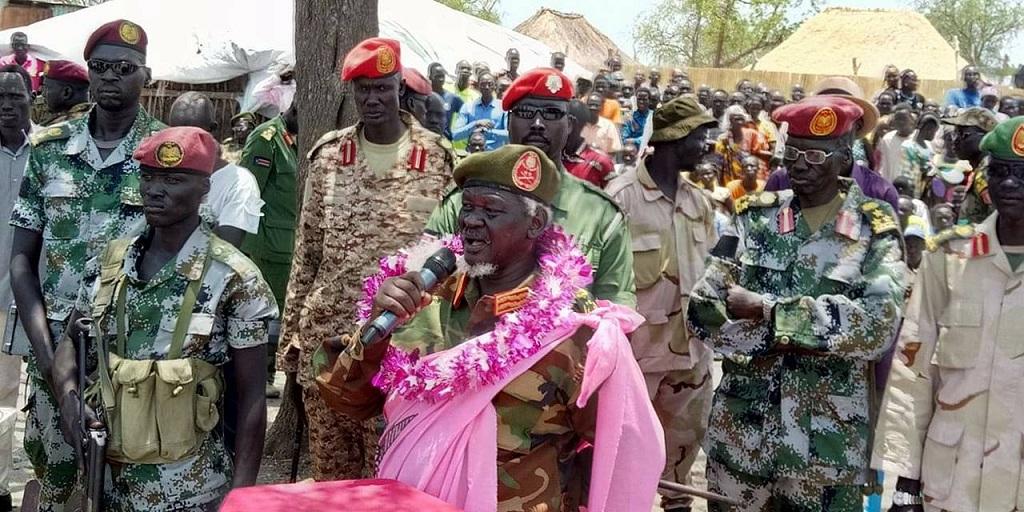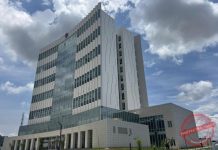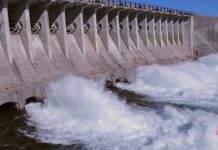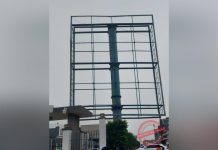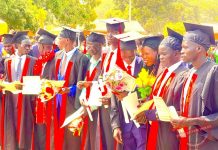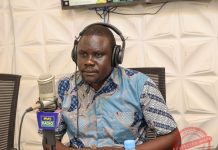Africa-Press – South-Sudan. After the war broke out in 2013 and the South Sudanese civil population was displaced, various individuals and groups – business people, politicians, civil society, farmers, students and more – found themselves pushed to areas which fell under the control of Division 4 and Division 8, who had mutinied after the tension within the SPLM turned violent in Juba. On January 3rd, many of these individuals and groups found themselves in Addis Ababa and in negotiations with the government, who called for peace talks to be negotiated by the regional body, IGAD.
The civil defense forces, known as the Lou Nuer White Army, were marching on Juba and the embattled regime was under pressure. The name “SPLM-IO” was not in use at this time. It was endorsed at the Nasir Conference in April 2014 after it was imposed by the mediation. Ownership of the brand “SPLM” was the first stumbling block in the negotiations. The movement that became known as “SPLM-IO” was originally envisioned as a Forum to Restore the Dignity of our peoples. It was not to be a traditional political party – it was essentially a peace movement. The movement consisted of civil defense forces, the SPLA Division 4 and 8, politicians, business people, civil society, farmers and more.
The lessons learned after the infamous J1 dogfight, leading to the catastrophic collapse of the security arrangements of the 2015 Agreement must not be repeated. Two armies has never been our objective – that is mischief. What we want is separation, cantonment and unification of the various paramilitary and civil defense forces across the country. The leadership of the SPLM-IO became divided over this process of unification of the army. A number of leaders were of the view that we should not accept the formation of the transitional government before the implementation of Chapter II: Ceasefire and Transitional Security Arrangements. Its implementation would create an environment of trust, which could facilitate the genuine implementation of the agreement. We are against the concept of having two armies in one country.
Certain interest groups within the leadership of the SPLM-IO were able to prevail on the then Chairman, who used his prerogative to downplay the concerns by the military and other senior political leaders, and decided to unilaterally move the political headquarters from Khartoum to Juba. The populist slogan “give peace a chance” was used to coerce reluctant members to acquiesce to this unpopular decision.
We have been “giving peace a chance” for three years now, with the agreement’s matrix for implementation having elapsed. Chapter I: Revitalized Transitional Government of National Unity (R-TGoNU) – distribution of jobs – has only been selectively implemented and the security situation has deteriorated since the signing of the revitalized agreement. We can no longer blame this only on our partners in the peace process.
We, the opposition, also have a hand in this mischief. Despite having won the Defence and Veterans Affairs Ministry, the Deputy Ministry of Interior and USD 100 Million allocated to the Joint Defence Board (JDB) through the National Pre-Transitional Committee (NPTC), there is still no national army – only paramilitary groups allied to individual politicians in Juba and their vested interests.
After realizing that he has fallen in the trap of the interest groups and was unable to visit the cantonment sites, training sites and his forces in the liberated areas, the former Commander in Chief was finally deposed by the army he left in the bush. The FVP responded to this military takeover by ordering forces loyal to him to attack the SPLA-IO headquarters, in an attempt to resolve the dispute through violence.
The principles laid out in the Kit Gwang Declaration mark the beginning of a paradigm shift, a fundamental change from the traditional way of doing politics in our land. It aspires to restore the dignity of the South Sudanese peoples by addressing the problem of political instability in our nascent Republic.
The Kit Gwang Declaration acknowledges the frustration shown by the regional bodies and the international community due to the lack of political will from the parties despite tremendous expectations and goodwill. This should not lead to fatigue. Instead, South Sudan should be helped to achieve a lasting peace to allow it to benefit from its abundant resources that are currently being misused by the parties to fuel endless conflicts.
The revenues from oil alone could fund any new process needed to correct the mistakes of the last three years. The principal objective of the Kit Gwang Declaration is categorically peace within the context of the welfare and prosperity of our peoples, it is not about the distribution of political jobs.
We call on the citizens of our nascent Republic to subscribe to the principles of the Kit Gwang Declaration – a recommitment to a noble quest for peace. We are not a political party, we are a movement for peace. We further call on friends of South Sudan not to give up on us at this critical period. While recognizing the natural right of self-defense, the primary objective of the Kit Gwang Declaration is not to return the country to war. The fundamental objectives of the declaration are political.
It is only through the implementation of the Security Arrangement as laid out in Chapter II, can we attain political stability in our land. The Kit Gwang Declaration represents a recommitment to finding genuine peace after the failure to implement the agreement in Juba. Those opposition groups who have been in the struggle within to implement the agreement should welcome the Kit Gwang Declaration as the least costly way to recommit ourselves to the peace process. The status quo is untenable.
We also call on any political forces and other armed groups in our country who have been left out of the peace process to come on board so that we can find total peace once and for all. Finally, our compatriots in the regime should not fear the Kit Gwang Declaration because political stability in our country is in all our interest.

